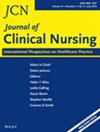摘要
目的:探讨以往的患者安全研究如何描述患者参与精神病院护理的相关问题:综合文献综述:文献综述按照库珀的框架进行,分为以下五个步骤:问题识别、文献检索、数据评估、数据分析和结果展示:数据来源:CINAHL、PubMed、PsycINFO、Scopus 数据库(2005-2023 年)。经过质量评估,共审查了 62 篇文章:结果:与患者参与精神病院护理相关的三个主要类别被确定:沟通(获得信息、被倾听、治疗关系和互动质量)、决策(治疗计划、治疗决定、活动和代表患者工作)和限制性措施(设置限制、行使权力、平衡患者自主权和安全):结论:精神病院护理人员应不断平衡病人的自主权、自决权和安全,同时考虑到他们的福祉和责任问题。在精神病院护理工作中,需要更广泛地利用积极的冒险精神来提高患者的参与度和安全性:护理人员应为患者的参与创造有利条件,营造信任、尊重和鼓励的氛围,为患者提供个人时间以提高患者安全,并认识到由于要不断平衡患者自主性和安全性,护理人员可以对患者施加权力:报告方法:PRISMA 指南:无患者或公众贡献。Aim
Explore how previous patient safety research has described issues related to patient participation in psychiatric hospital care.
Design
Integrated literature review.
Methods
The literature review was conducted according to Cooper's framework with the following five-step protocol: problem identification, a literature search, data evaluation, data analysis, and the presentation of results.
Data Sources
CINAHL, PubMed, PsycINFO, Scopus databases, years 2005–2023. After quality appraisal, a total of 62 articles were reviewed.
Results
Three main categories related to patient participation in psychiatric hospital care were identified: communication (having information, being heard, therapeutic relationships and interaction quality), decision-making (treatment planning, treatment decisions, activities and working on behalf of patients) and restrictive measures (setting limits, exercising power, balancing patient autonomy and safety).
Conclusion
Psychiatric hospital care nursing staff continuously balance patients' autonomy, self-determination, and safety, taking into account their well-being and issues of responsibility. Wider use of positive risk-taking is needed to increase patient participation and safety in psychiatric hospital care.
Implications for the Profession and Patient Care
Nursing staff should create favourable facilities for patient participation, foster an atmosphere of trust, respect, and encouragement, provide patients individual time to improve patient safety and recognise that they can exert power over patients due to constantly balancing patient autonomy and safety.
Reporting Method
PRISMA guidelines.
Patient or Public Contribution
No patient or public contribution.

 求助内容:
求助内容: 应助结果提醒方式:
应助结果提醒方式:


